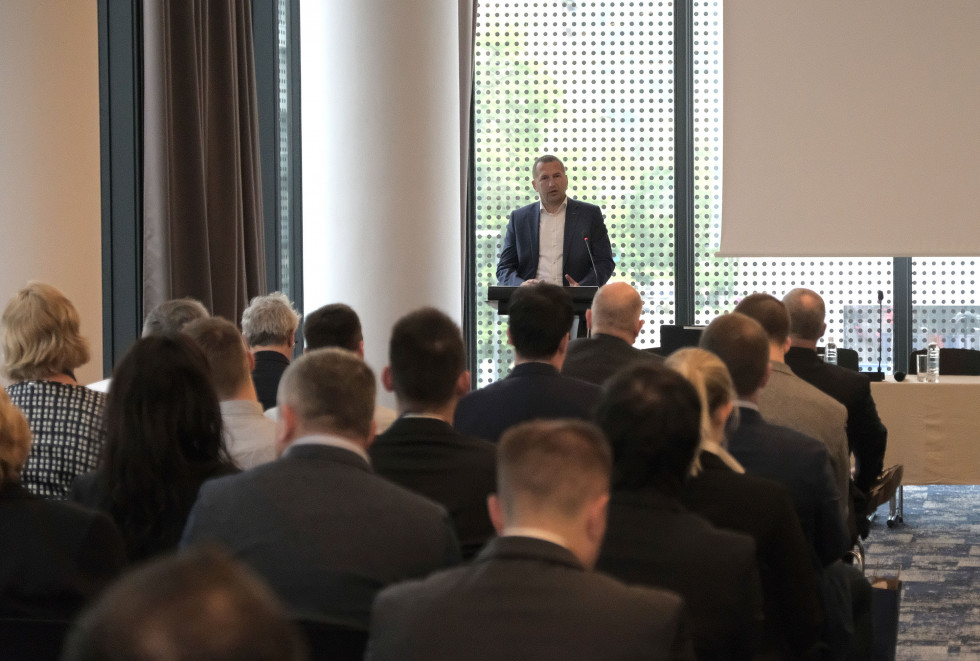International conference on cyber defence highlights importance of cooperation
On Monday, the round table on cyber defence challenges and capacity building in the Western Balkans was addressed by Dr Damir Črnčec, State Secretary at the Ministry of Defence, and General Jürgen Brötz as NATO representative.
The discussion was attended by high-level representatives of the European Union, NATO, the Western Balkans and Slovenia, as well as experts in their respective fields. They exchanged views on the dimension of cyber threats, major cyber challenges and vulnerabilities, and discussed opportunities to provide further support for capacity building to counter cyber threats in the Western Balkan countries. The discussion on cyber defence policy trends, including strengthening national cyber resilience and strengthening international norms in cyberspace, was very topical.
On the second day of the conference, representatives of established international cybersecurity companies and experts from the participating countries shared with the participants in several workshops their findings, the latest trends and possible tactics of action and development of the various cyber actors. By sharing experiences, we are both raising awareness of malicious activities in cyberspace and building and consolidating trust between Alliance members and partner countries and industry. Cyber threats are almost always cross-border, and a cyber attack can affect a region as a whole. We can only be successful in responding to incidents if all civilian and military stakeholders and structures, both nationally and internationally, work together quickly and effectively.
Wednesday and Thursday were dedicated to the NATO Cyber Threat Intelligence and Data Conference. In his opening address, Secretary of State Dr Damir Črnčec highlighted the increasing impact of digitisation and the internet on our way of life and our exposure to malicious cyber actors. Cyber threats have become a constant feature of our daily lives and the ecosystem in which we live. In recent times, cyberspace has been increasingly misused by various actors to create disorder, disrupt the functioning of various public services and services, critical infrastructures, and consequently reduce the quality of our lives. Cyber-attacks and malicious cyber-activities take place continuously in times of peace, crisis and conflict with devastating or disruptive effects.
Malicious actors seek to obtain intelligence, alienate intellectual property and disrupt military activities. Proactive information sharing on potential incidents and alliance cooperation are therefore essential to maintain situational awareness and increase alliance resilience to cyber threats, and are the key to ensuring the security of our society in the long term.
At the conference, the participants discussed topics that are also very important for the current broader efforts to improve regional and European cyber resilience and manage cyber crises, protect the global, open, free and secure internet, and to deter and defend against malicious cyber activities.

International conference on cyber defence | Author Ministry of Defence

